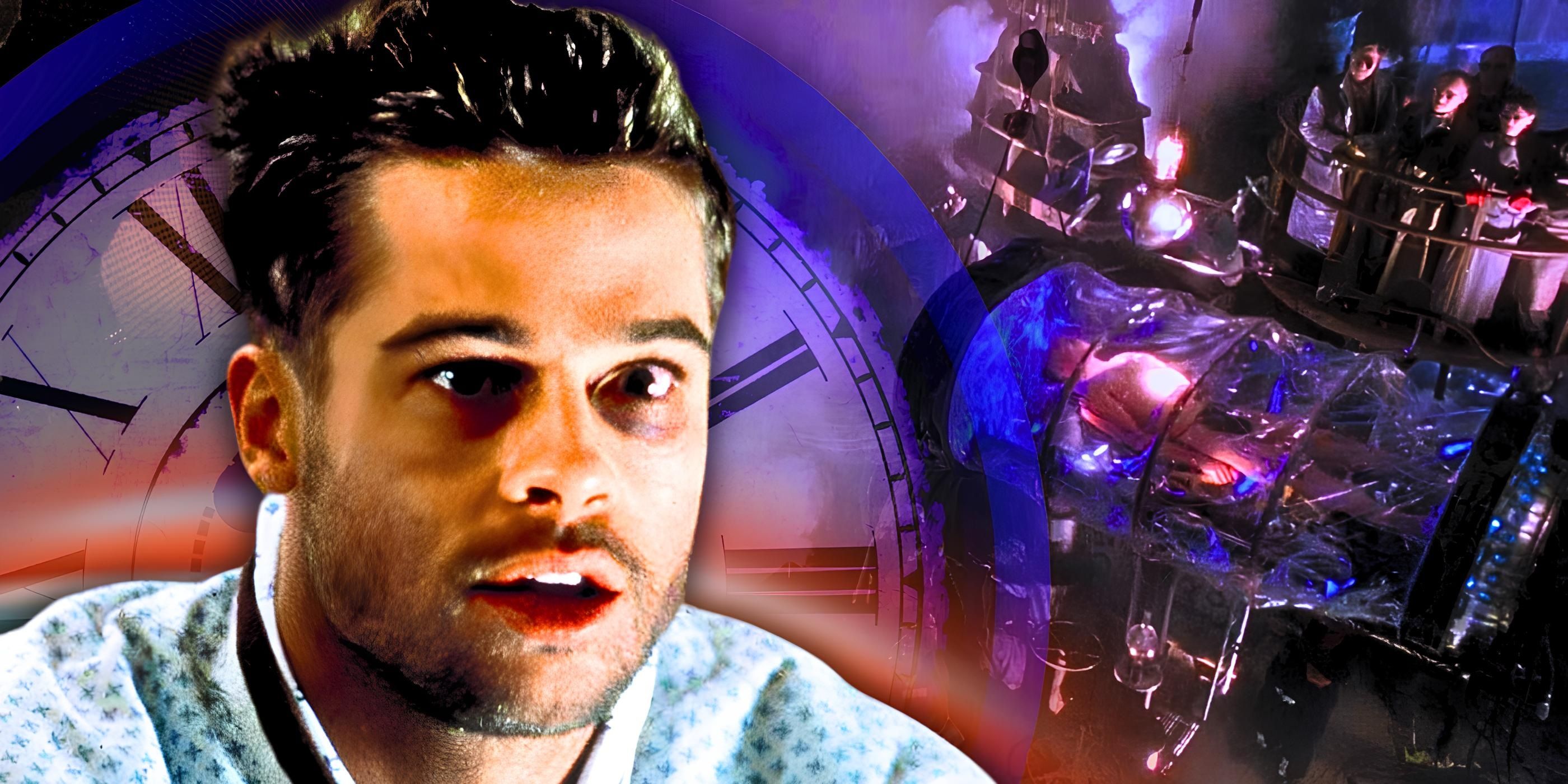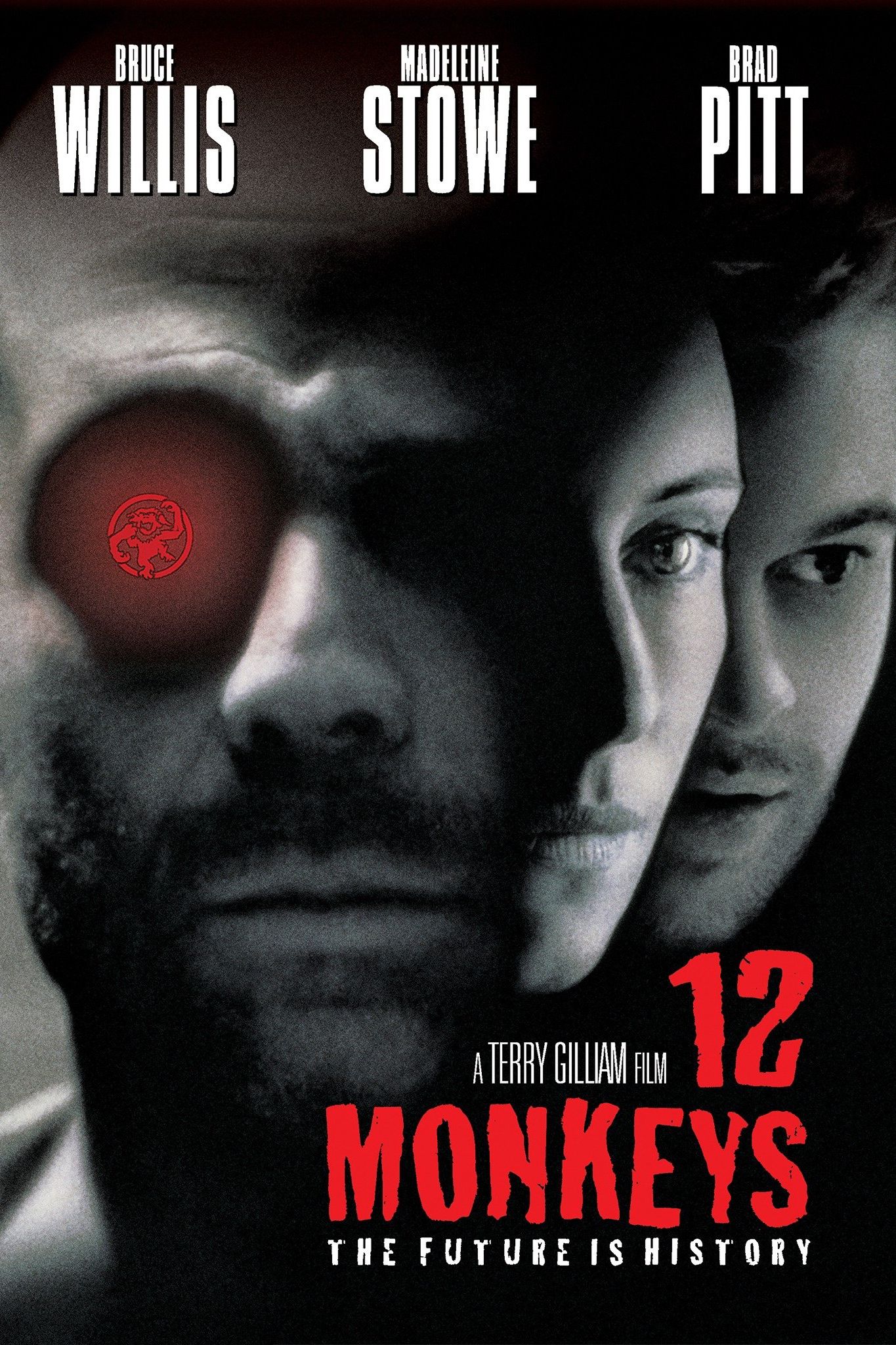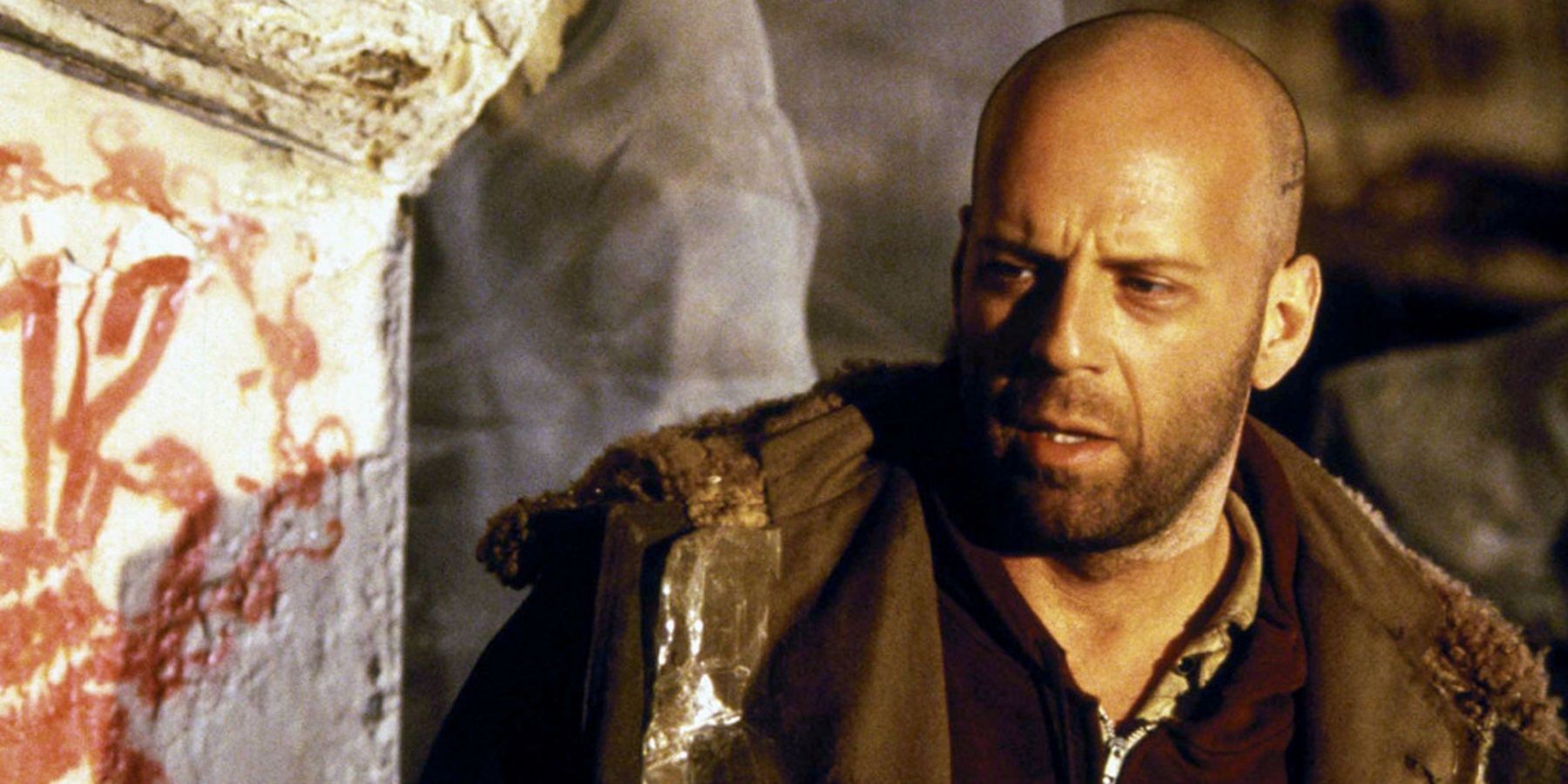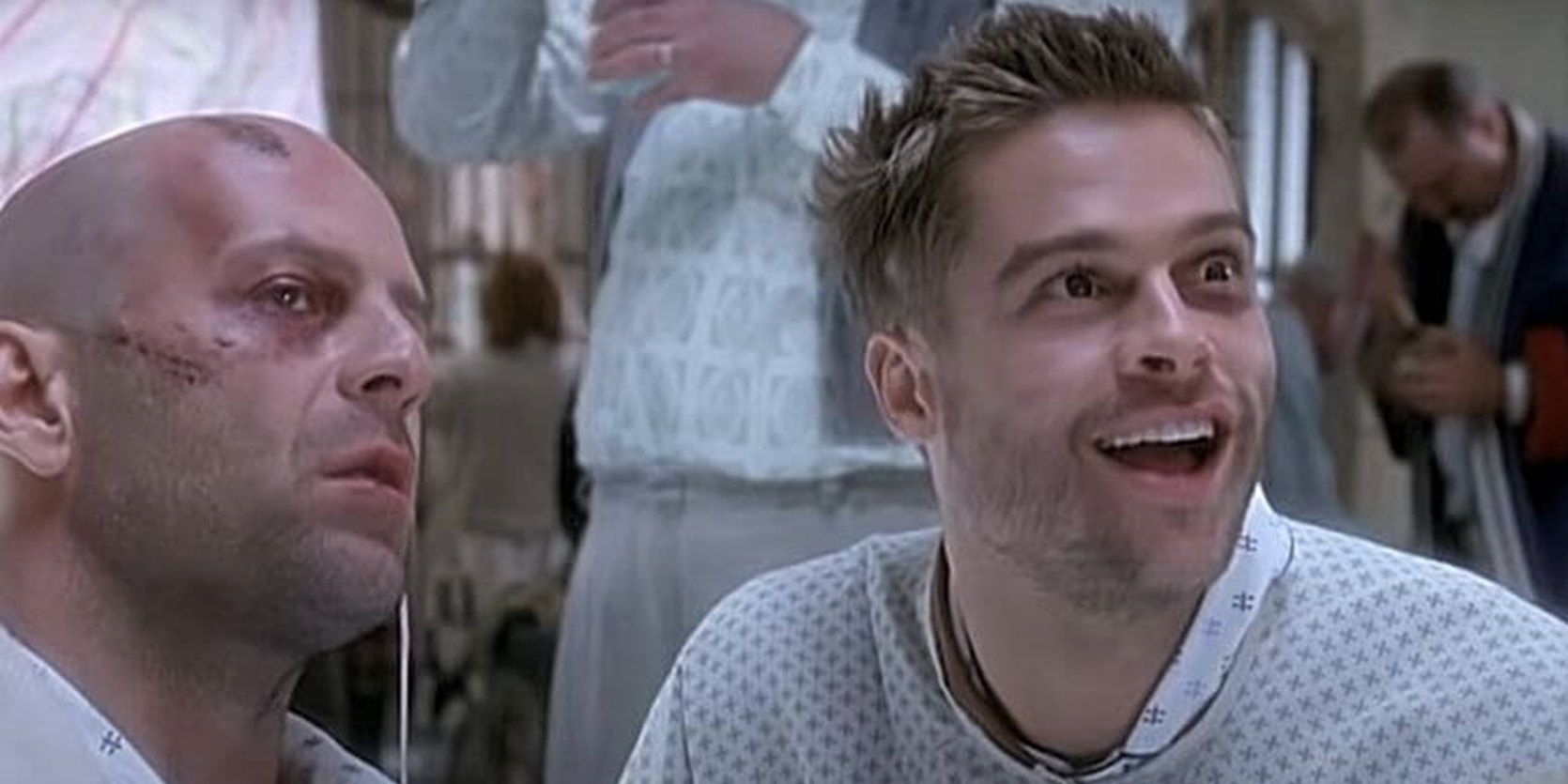This 1995 Sci-Fi Movie Is Probably The Best Depiction Of Time Travel I’ve Seen

Summary
- 12 Monkeys presents a realistic portrayal of time travel, setting it apart from other sci-fi films that treat time travel as pure fantasy.
- The film’s time-travel process is extremely unreliable, actively standing in the way of the plot’s progression and reflecting early technology defects.
- 12 Monkeys doesn’t break its own time-travel rules, using them as dramatic tools to emphasize the tragedy of the protagonist’s ultimately pointless journey.
The underrated 1995 sci-fi gem 12 Monkeys features arguably the most realistic portrayal of time travel that’s ever been put on screen. Set in a post-apocalyptic future ravaged by a deadly disease, 12 Monkeys stars Bruce Willis as a convict named James Cole, who’s sent back in time to gather information about the mysterious man-made virus that wiped out most of humanity. It was directed by Monty Python’s Terry Gilliam, written by Blade Runner’s David Peoples and his wife Janet Peoples, and it’s a sci-fi reimagining of Chris Marker’s seminal 1962 French sci-fi short La Jetée.
There are plenty of sci-fi movies that deal with time travel, from Tenet to The Terminator to Back to the Future to Avengers: Endgame, but they usually depict time travel as pure fantasy. They mix in some sci-fi gobbledygook to plaster over the scientific inconsistencies so they can use time travel for its primary purpose as a plot device. Shane Carruth’s Primer has been lauded as the most scientifically accurate portrayal of the discovery of time travel, but 12 Monkeys is arguably the time-travel movie that feels the most realistic.
Why 12 Monkeys’ Version Of Time Travel Feels More Realistic Than Most Sci-Fi Stories
12 Monkeys’ time travel is an extremely unreliable process
The time travel in 12 Monkeys feels real because it’s not just a plot device; it’s a very volatile, unreliable process that actively stands in the way of the plot’s progression. Whatever the plot requires the time machine to do, it does the opposite, which feels very accurate to how defective early versions of complicated technology tend to be. 12 Monkeys’ time-travel process sees Cole being cleansed, put into a plastic chamber, and attached to various clips. He’s then sent through a time tunnel that acts as a sort of railway, literally shooting him into the past.
But it very rarely works the way it’s supposed to. Cole is supposed to be sent back to 1996, around the time of the outbreak, but he’s sent to 1990 – and then he’s flung back even further to World War I. Even when the time machine does work effectively, the scientists running it can barely control it. Doc Brown’s time machine always goes to the exact date punched into the dashboard (except when it was struck by lightning and went off-course by a century), and the Terminators always appear at the exact time they’re sent to, which feels very convenient.
Related
12 Monkeys: 10 Films To Watch If You Liked Terry Gilliam’s Surreal Time Travel Movie
12 Monkeys is one of the most revered cult classics ever made. Fans of that time travel movie should check out these 10 titles as well.
12 Monkeys’ Time Travel Mechanics Don’t Break The Movie’s In-Universe Rules
Unlike Back to the Future and Avengers: Endgame, 12 Monkeys doesn’t break its own time-travel rules
One of the quickest ways for a movie to break the audience’s immersion and unsuspend their suspension of disbelief is to disobey the established in-universe rules. Back to the Future has some hints that Marty McFly’s alterations to the timeline were always inevitable and some hints that the timeline changed after his time-traveling adventures. Avengers: Endgame establishes early on that going back in time and altering things won’t change the future. But at the end of the movie, Steve Rogers goes back in time and changes his future. These inconsistencies hurt the experience of the film with baffling fridge-logic questions.
What makes 12 Monkeys such a great time-travel movie is that it never breaks its own rules about time travel. Cole goes back to a pre-outbreak world in the hope that he can prevent the virus from being created and, in turn, prevent the post-apocalyptic dystopia that he calls home from ever existing. But, taking a leaf out of its source material La Jetée’s playbook, a tragic twist reveals that some history can’t be changed. The end of the world is inevitable. Everything that Cole knows to be true eventually comes to pass.
12 Monkeys doesn’t magically undo this heartbreaking rule of time travel for a satisfying conclusion to the story. It doesn’t alter the timeline for an ideal version of the present, like Back to the Future, or brazenly ignore its time-travel rules to give its lead character a fitting ending, like Avengers: Endgame. It uses its rules and the fact that they can’t be broken as dramatic tools to hammer home the tragedy of Cole’s ultimately pointless journey. The closed time loop makes 12 Monkeys a deeper narrative experience.
12 Monkeys
was adapted into a TV series that ran for four seasons on Syfy.
12 Monkeys’ Timeline Is Complex, But Without Hurting The Story
The time-traveling complexities never detract from the story Gilliam is telling
Despite how complicated the timeline of 12 Monkeys gets, it never detracts from the story that Gilliam is telling. 12 Monkeys is essentially a two-hander between Willis’ Cole and Brad Pitt’s Jeffrey Goines, an environmentalist mental patient that Cole meets when he’s sent to a psychiatric facility. There’s a lot of complex sci-fi mumbo jumbo going on in the background, but Gilliam never lets that distract from the unique relationship at the heart of the film.

12 Monkeys
In 12 Monkeys, convict James Cole (Bruce Willis) travels back in time to learn the origin of a man-made virus that has unleashed worldwide chaos in the future. Terry Gilliam’s 1995 sci-fi movie, which boasts a cast that includes Brad Pitt, Christopher Plummer, Madeleine Stowe, and David Morse, is based on Chris Marker’s 1962 short film La Jetée and originated a 2013 TV series adaptation.
- Director
- Terry Gilliam
- Writers
- Chris Marker , David Webb Peoples , Janet Peoples
- Cast
- Joseph Melito , Bruce Willis , Jon Seda , Michael Chance , Vernon Campbell , H. Michael Walls
Related
Turkish Airlines and Qatar Airways Suspend Mogadishu Flights Following US…
Home » Airlines News of Qatar » Turkish Airlines and Qatar Airways Suspend Mogadishu Flights Following US Embassy Terror Alert, Raising Security Concerns at
Local tourism destinations grow fast
Men sit at the Doha Corniche backdropped by high buildings in Doha on March 3, 2025. Photo by KARIM JAAFAR / AFP DOHA: Local tourism destinations are g
Hajj, Umrah service: Qatar Airways introduces off-airport check-in for pilgrims
Image credit: Supplied Qatar Airways has introduced an off-airport check-in
IAG, Qatar Airways, Riyadh Air, Turkish Airlines, Lufthansa & more…
Turkish Airlines – a Corporate Partner of the FTE Digital, Innovation & Startup Hub – is charting a course to rank among the top 3 global airlines for















